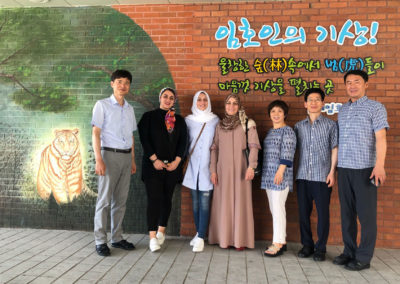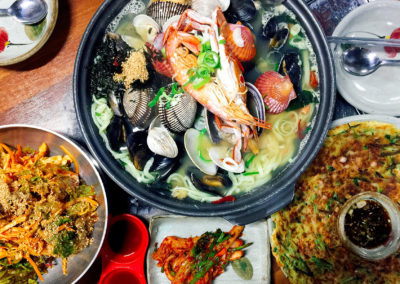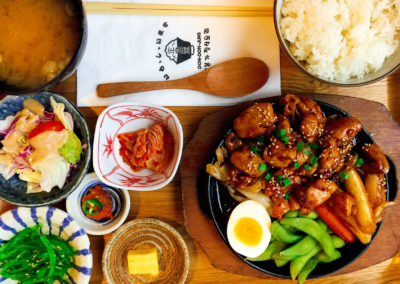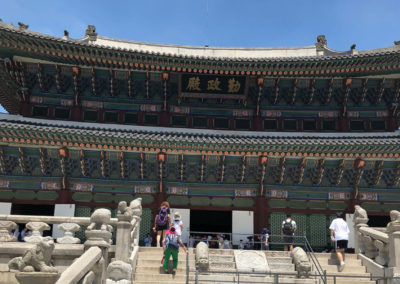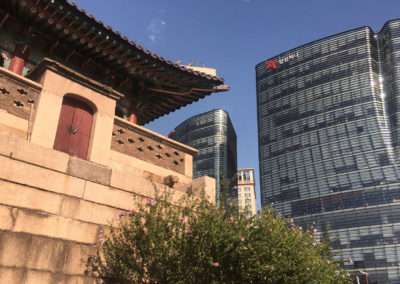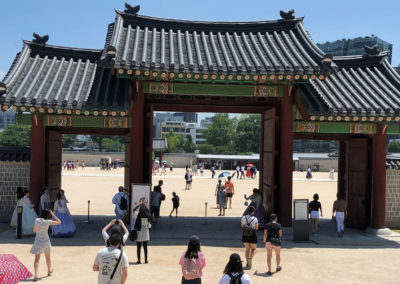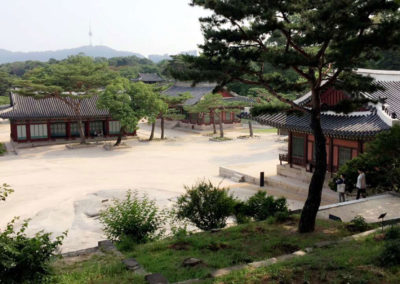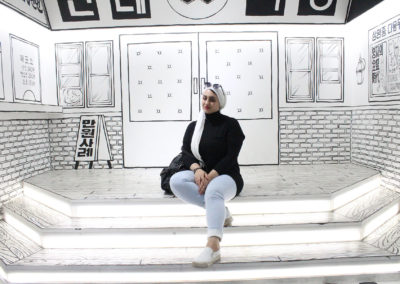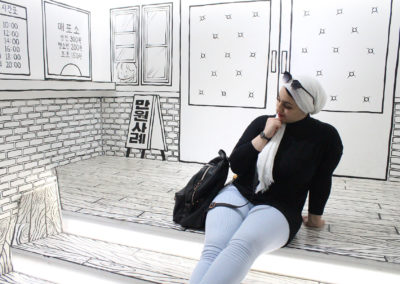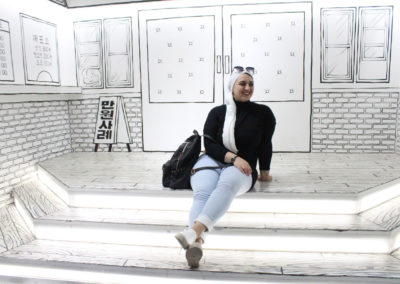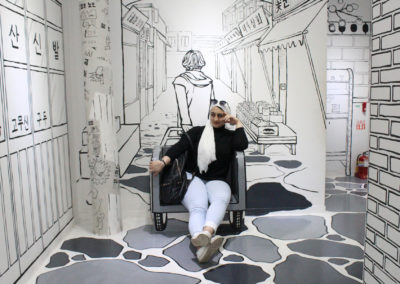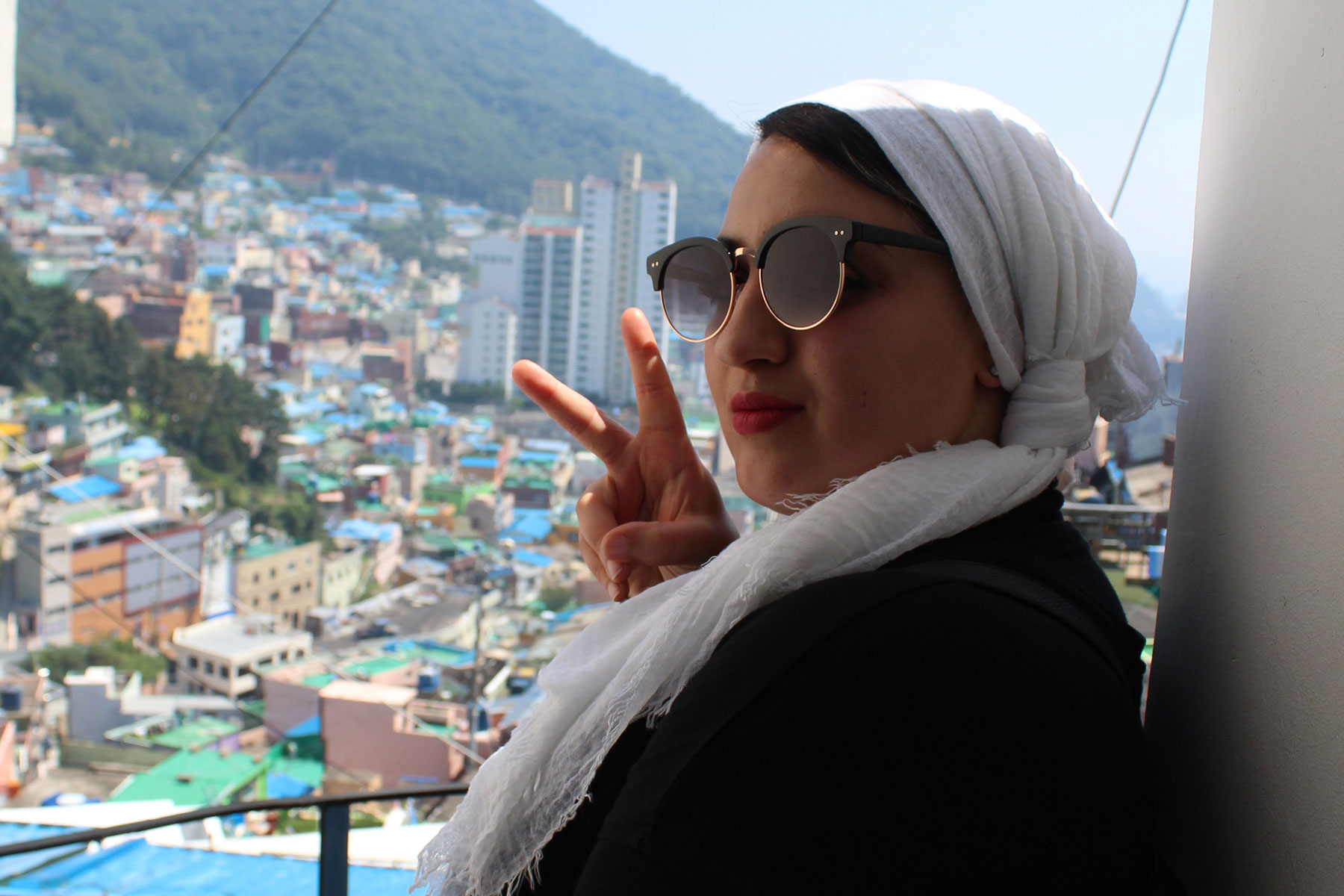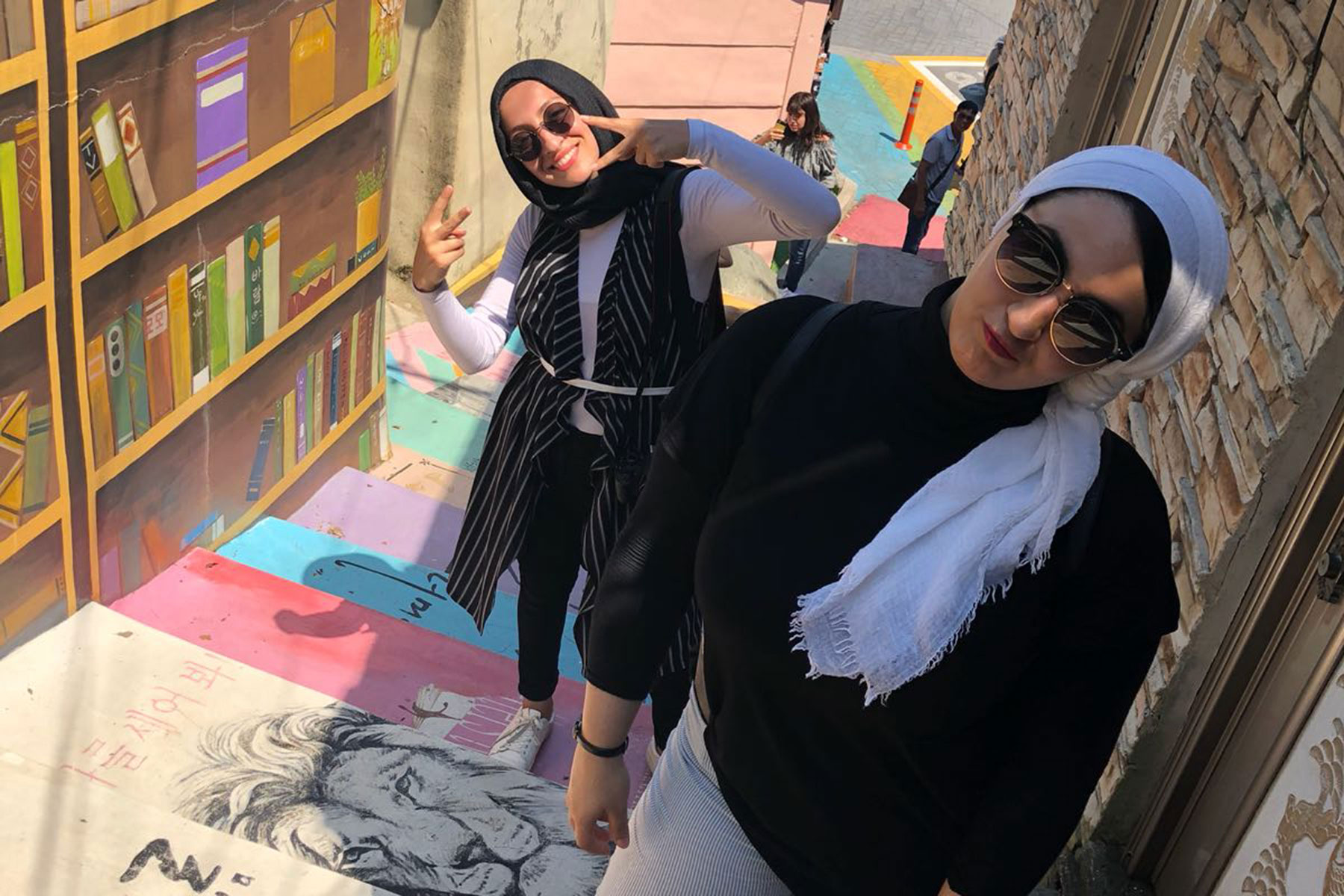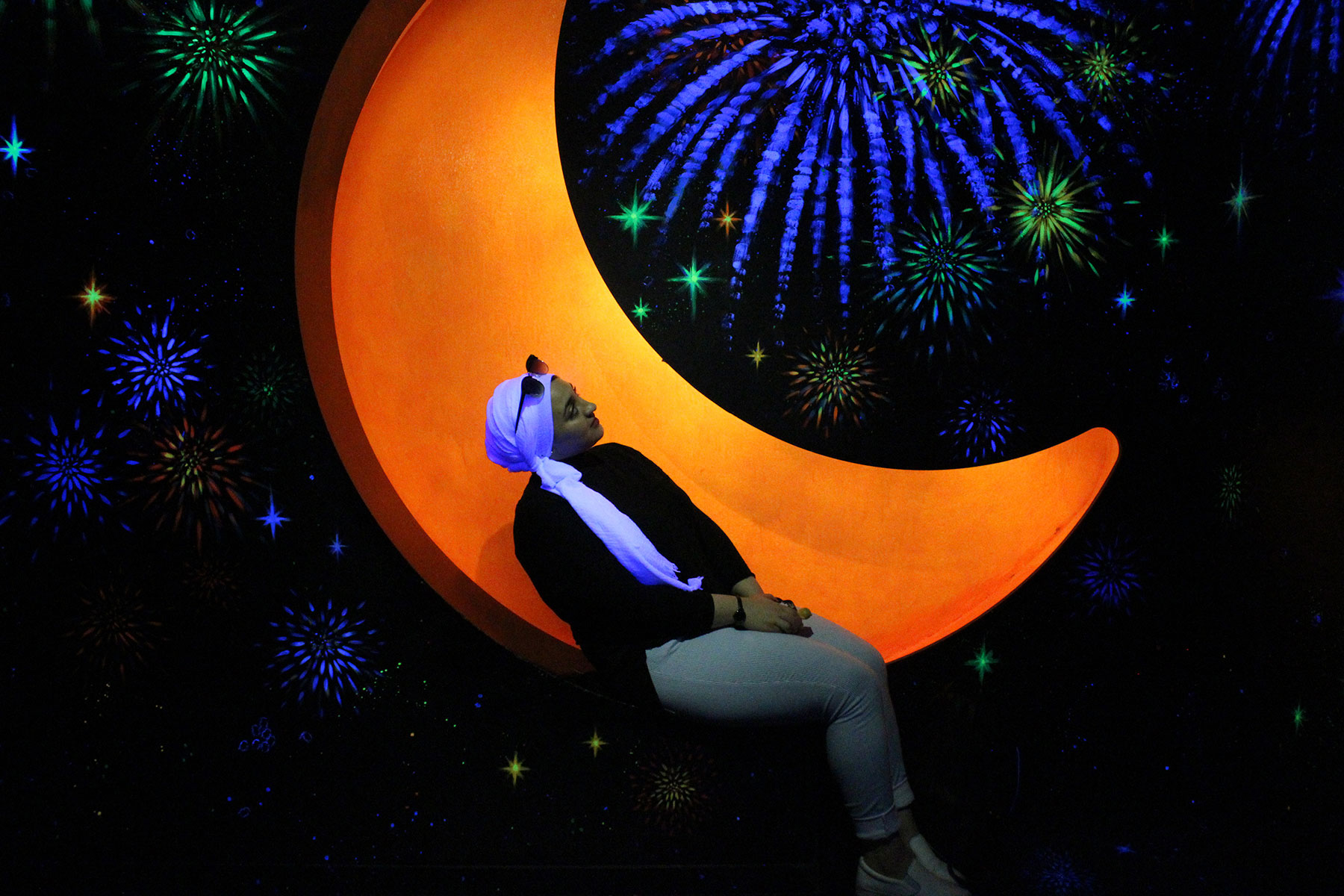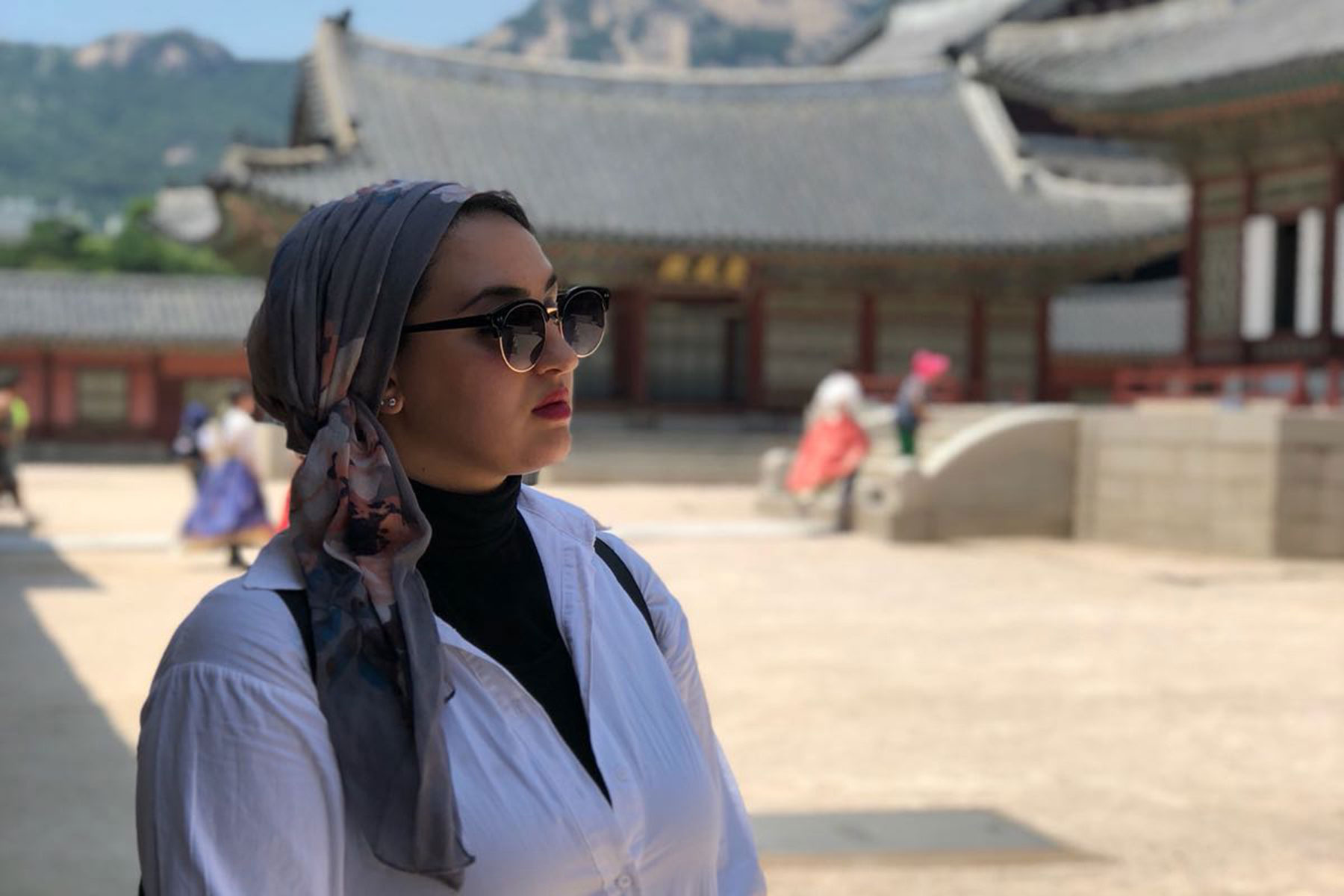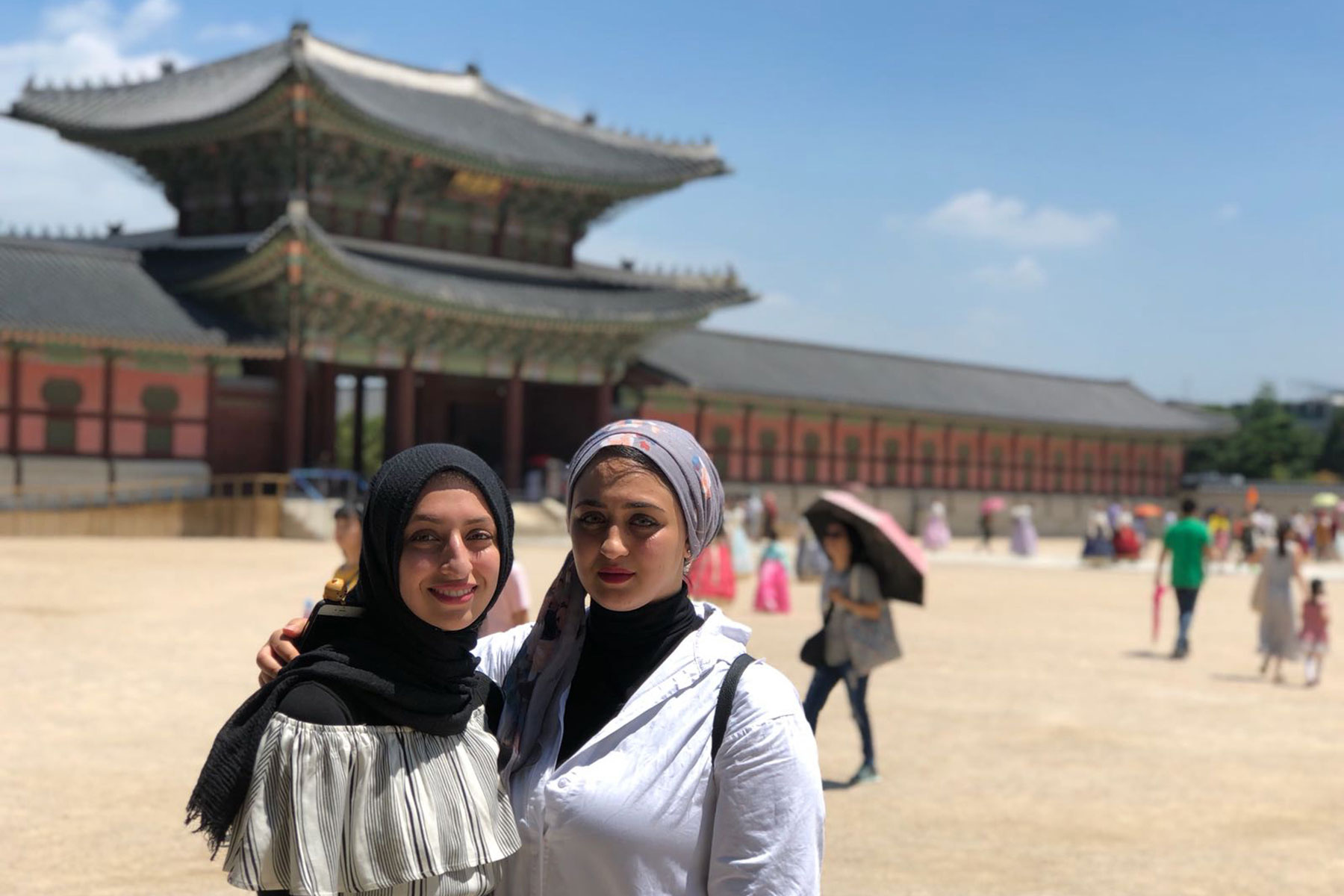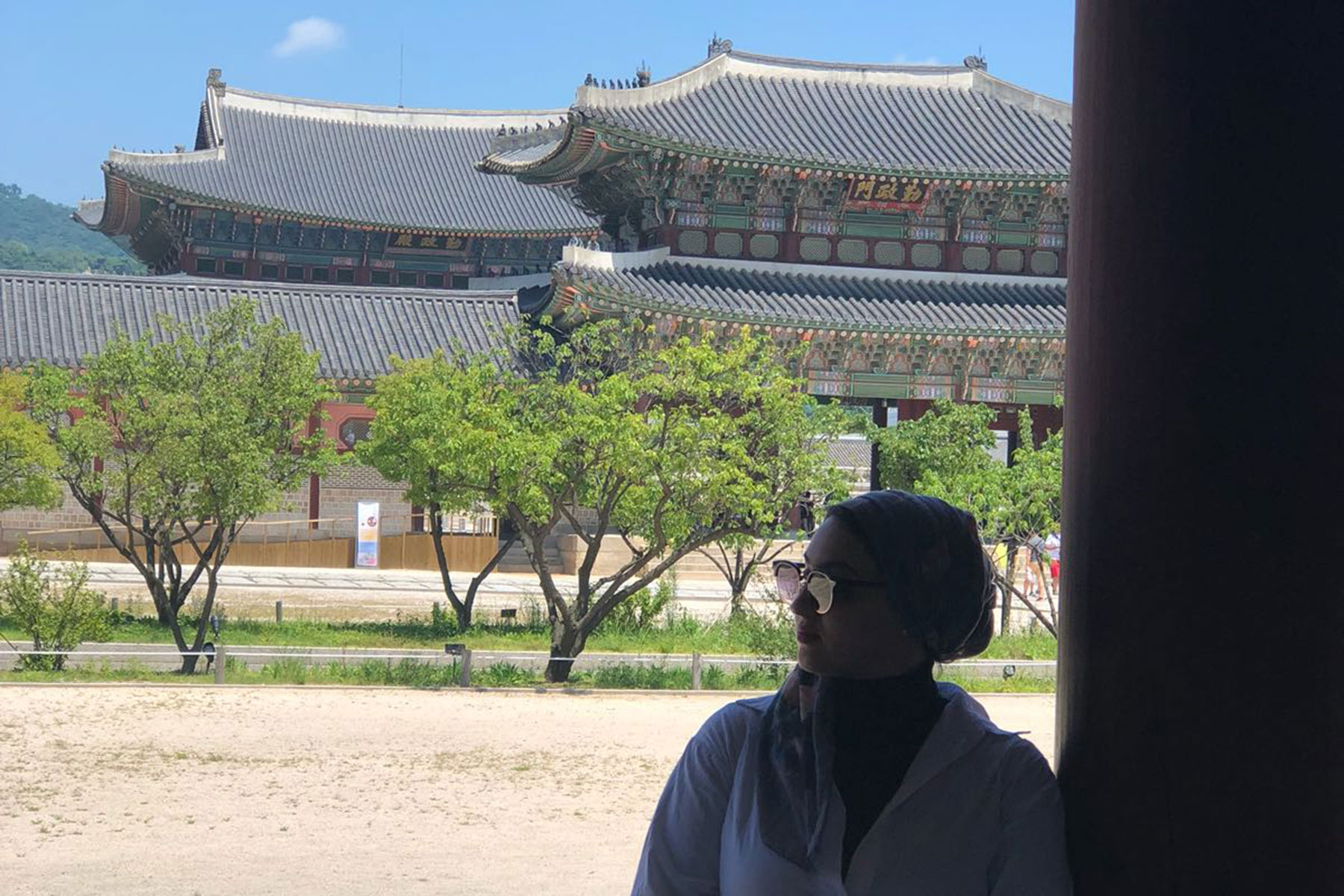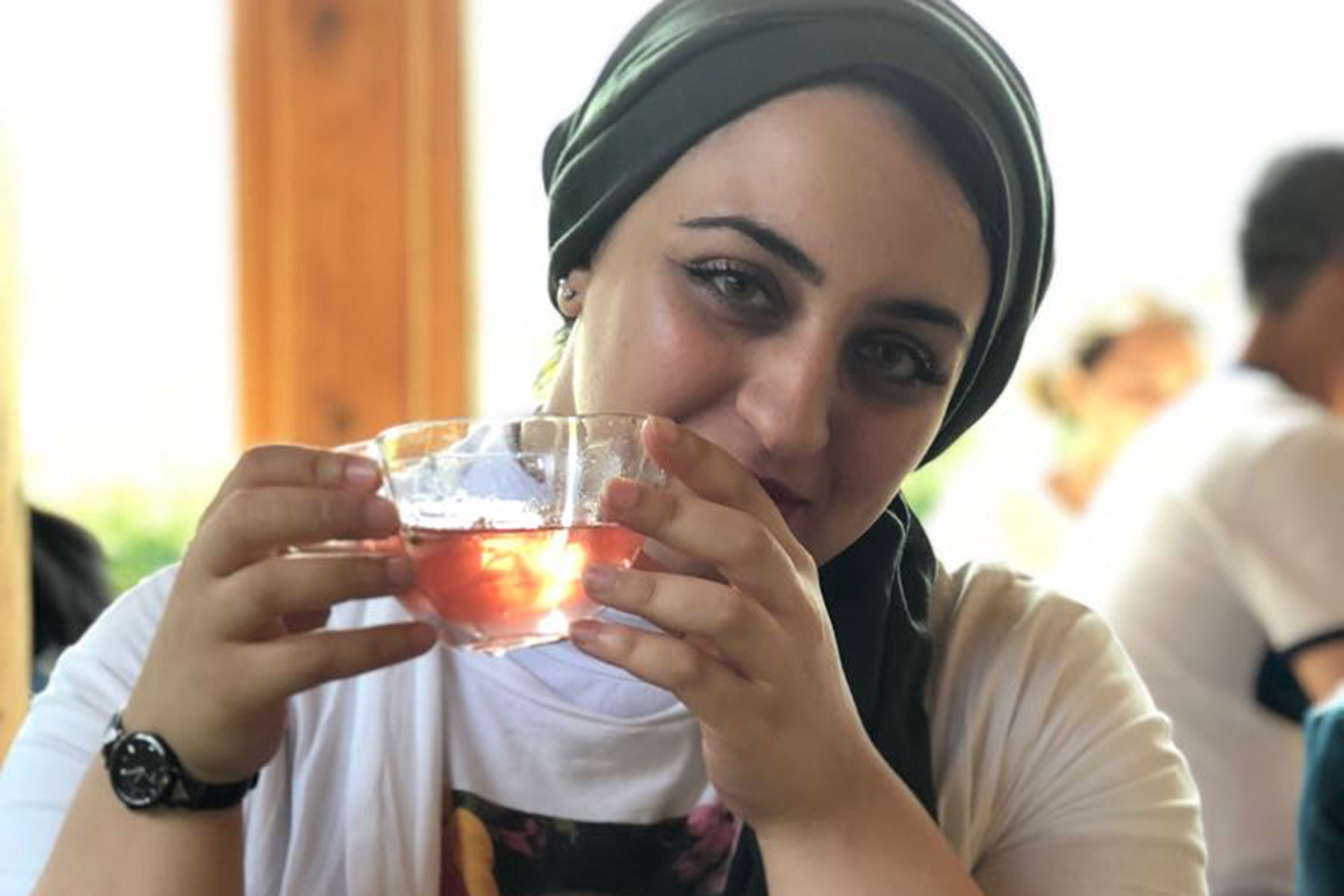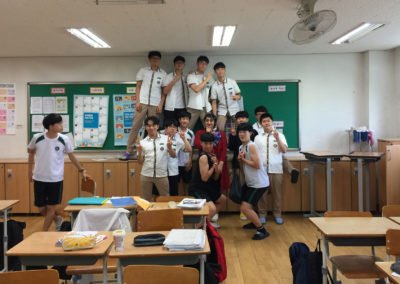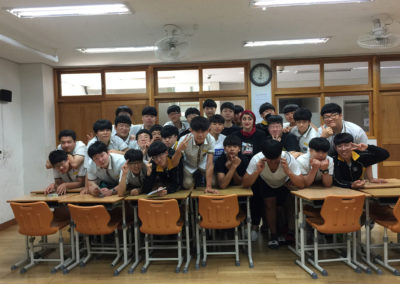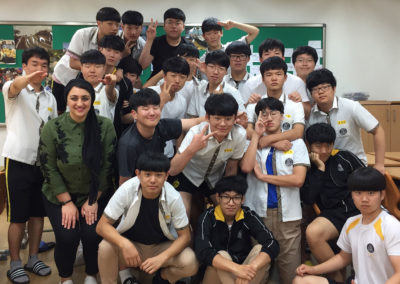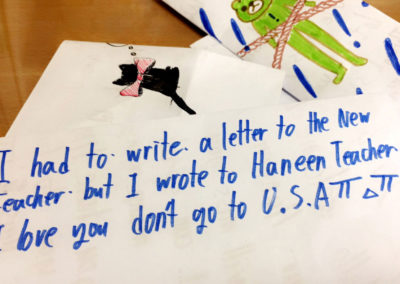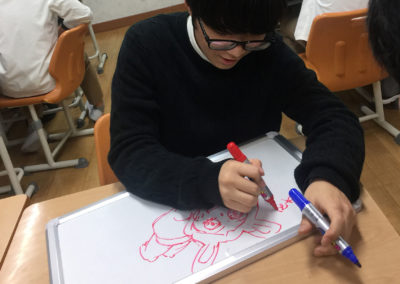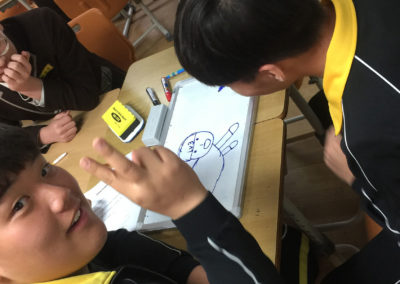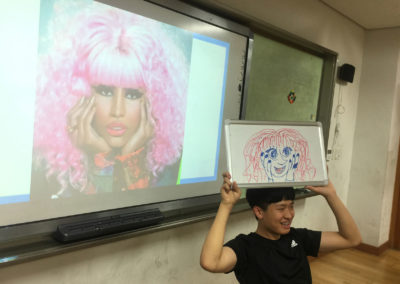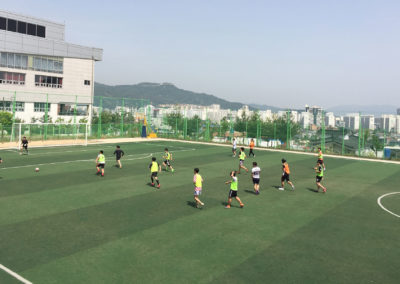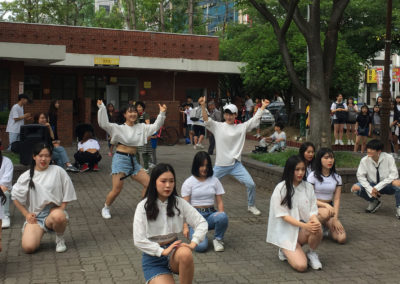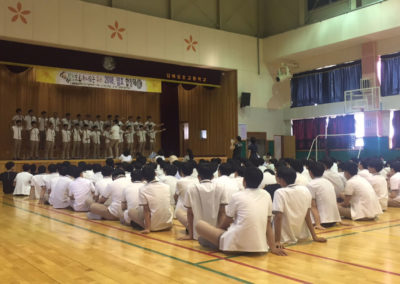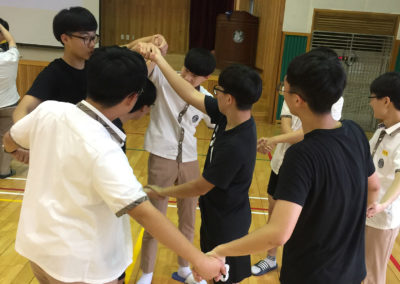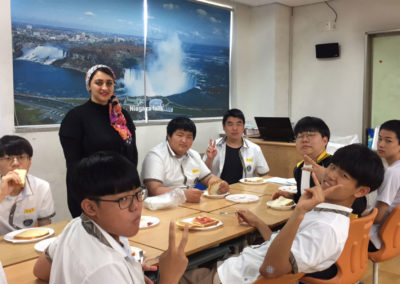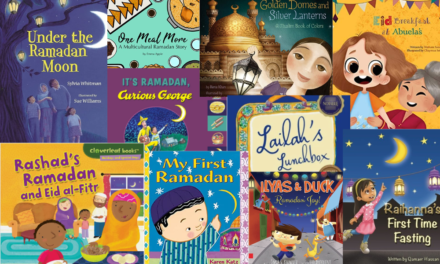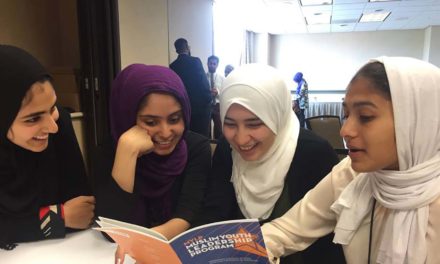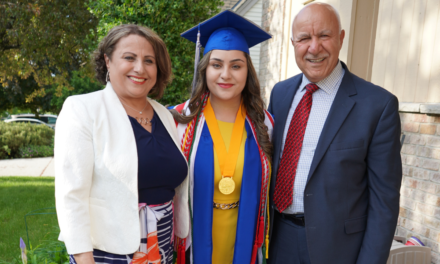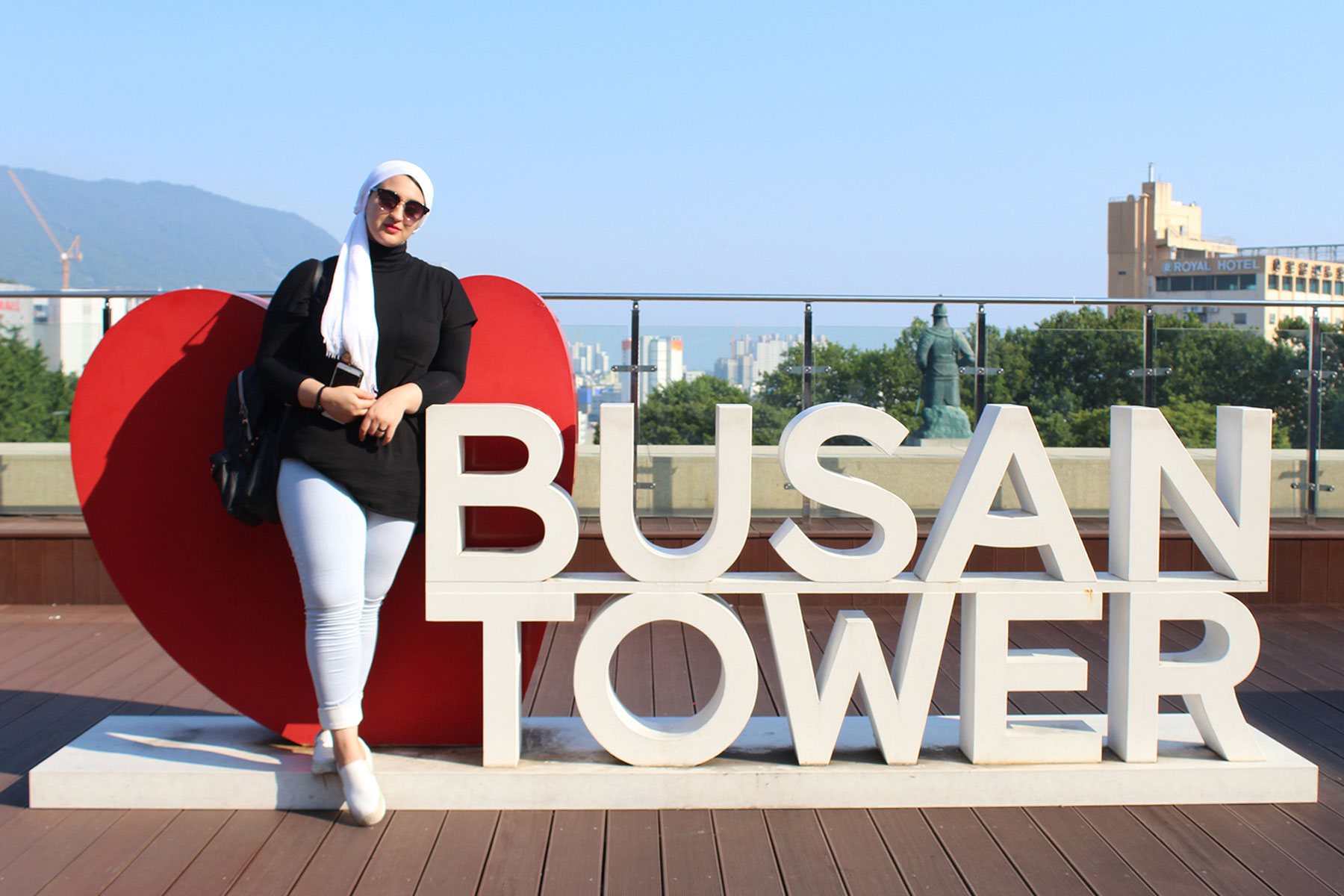
Since being awarded a Fulbright to teach English in South Korea last year, Milwaukee resident Haneen Amro has immersed herself in the culture and found many common connections with her own Arab heritage. In a fairly homogeneous Korean culture, Amro works with an isolated community of North Korean students who are considered immigrants.
Q&A with Haneen Amro
Wisconsin Muslim Journal: What motivates you to do volunteer work, and have the joys outweighed the frustrations?
Haneen Amro: I started volunteering from a young age. I grew to love it because there is a sense of fulfillment in helping others, and in turn learning more about myself. I also believe volunteering helps not only a person’s mental health but physical health too. While we may think we are giving a lot, we are receiving so much more.
I chose to volunteer with North Koreans because I felt it was a demographic I wanted to understand more. I can only imagine what these people have been through, when they defected from North Korea, so I wanted to learn about them and the challenges they face. Also, my focus was in teaching them English. It is uncommon for North Korean defectors or refugees to study much English in North Korea. On the other hand, English-language skills are necessary for many academic courses and professions in South Korea. South Koreans also frequently use loan-words from English, which can be unfamiliar and frustrating to North Koreans. By teaching them English and getting to know them as people, it was my hope to somehow contribute to making their day just a bit brighter when we would meet. I am not sure if my mindset is right or if what I did had an effect, but I enjoyed the give and take of volunteering with them.
Wisconsin Muslim Journal: How did your interest in Asian culture develop, and is there a dream location you have yet to visit?
Haneen Amro: My interest in Asian cultures started from, believe it or not, Anime. A friend had introduced me to the Japanese cartoons back in 2005, and from there I became interested in Japan. The culture was so different from my own – Arab or American – and my interest peaked, I have always had a curious mind. My interests started expanding once I transferred universities and got involved in a program with international students. That is when I met Minjin, the Korean girl that nurtured my interest in Korea, a country I had never even thought of before. I took it upon myself to learn about Korea, then I took a trip there in 2016. That was when I knew I wanted to come back here (Korea). I still have several destinations I would like to visit in Asia – Singapore, Malaysia, Thailand, Vietnam, The Angkor Wat in Cambodia, and Taiwan. I hope to visit them over the next few years Insha’Allah (God willing).
Wisconsin Muslim Journal: How well can you speak Hangul, and what was the most difficult part for you to learn?
Haneen Amro: My Korean level is currently intermediate. My listening skills are much stronger than my speaking skills as of now, but I plan to improve that with time. It was very easy for me to learn how to read and write Korean. Pronunciation and grammar were things that needed focus and work. To the untrained ear, the “m” in Korean can sound like an English “b” and some parts are spoken in a way where people may miss a full syllable if they have not seen the spelling of the word already. There are lots of letters that seem to sound one way but are actually a completely different letter – b/p , m/b, k/g, and such. The Korean language in its written form is not too hard to learn, but the pronunciation can be a bit trickier. I think Americans should try and study it more.
Wisconsin Muslim Journal: What is your experience being a Muslim woman in South Korean society?
Haneen Amro: Being visibly Muslim in South Korea has been mainly positive and less stressful than being visibly Muslim in America, in most situations. I do not feel like I am walking around with a target on my head here. Sure, people stare a lot but that is a normal experience for any foreigner, and most people tend to just be curious so they look. Koreans are also very interested in what you say, and when you speak nearly fluent Korean it blows their mind. It is very unexpected and very much appreciated. I have been approached on several occasions and asked why I wore the hijab. Most Koreans approach me with inquisitive and open minds. On several occasions I was told that I look beautiful and that my outfit and hijab match well together – proof that women can be a hijabi and fashionable. My experience here in South Korea as a hijabi has been wonderful. But I do recognize that while most people do not say anything, there are some who do not approve of “looking different” or being a Muslim. Regardless, in my time here I have not faced any hate or heard any negative comments. Mostly I have heard, “Wow,” “Oh my God, a foreigner,” “So pretty,” “I wonder which country she is from,” “You’re American and Muslim?”
Wisconsin Muslim Journal: How is faith a part of the work you do?
Haneen Amro: Being Muslim I must always be aware of my actions, so as not to give people the wrong idea about my faith or a bad impression of it. A big part of Korean work culture are HwaeSiks – workplace dinners which can be 2 to 4 rounds. This is where all staff members go out to dinner for round 1, then drinks round 2, and might possibly do a 3rd round of going to karaoke or another activity. As a Muslim, they were aware I could not drink alcohol, eat pork, or do things that involved too much unnecessary mixing of the genders. So they respected that and most school gatherings were held during lunch times or right after work with food options for both myself and them. To be fair, my school is not as strict as other places when it comes to this aspect of Korean culture, so in that sense I got lucky. When my school’s principal was informed I am Muslim, he researched about Islam to learn about me and my faith. So, my time here has been comfortable, as most people were well informed and aware.
Wisconsin Muslim Journal: How have you been able to connect Arabic culture to your current environment?
Haneen Amro: Being here, I have realized there is so much in common between the Korean and Arab cultures. It took me pleasantly by surprise the first time I had visited Korea. When guests visit an Arab home, they will be flooded with food and goods, so much that it is easy to feel like your stomach may explode. That is the generous nature of Arabs. I found the same aspect in Korea. Whether it was visiting a friend’s home, co-worker’s house, or even the ahjumma (old lady) or ahjushi (old man) at the restaurant or traditional market, they would do the same. If I ate a little, they nudged me to eat more, they added more food to my plate, they put pieces of meat on top of my rice, and they made sure I left with an overly full stomach. Another thing is mannerisms, respect for the elders and such are fairly similar to Arab culture. There are many aspects I can dive into that remind me of the Arabic culture, whether it be the people, way things are done, or settings.
Wisconsin Muslim Journal: After being in South Korea, was there anything you realized that you missed about Milwaukee?
Haneen Amro: I missed having Lake Michigan within a short distance, bonfires, my mom’s cooking, and just having Muslim friends around when I needed them. I have Muslim friends here but they are in Seoul and I’m down by Busan – two opposite ends of the country. I also missed having my own car. Public transportation here is very convenient and Korea has a great walking culture, but on days when it would rain or in areas where transportation was weaker, a car would have come in handy.
Wisconsin Muslim Journal: What has been the most important lesson you have learned teaching overseas?
Haneen Amro: I had never considered teaching and was a bit worried about this journey. Being a Speech-Language-Hearing Pathology major, I was not sure I would do well being an educator. I have learned that being a teacher is nurturing the love of education, and teaching students to be culturally competent. This includes the acceptance of various races, religions, and traditions. Additionally, through teaching I learned more about myself, I realized I had so much love and knowledge to pass on. Teaching these wonderful students allowed me to channel that and pour it into them. I believe that this teaching opportunity was a big blessing. I have gotten more out of the experience than I could have imagined.
Wisconsin Muslim Journal: What is the most common question you are asked in South Korea?
Haneen Amro: There many common questions I get asked: “Where are you from? Are you from Russia? What do you do? How long have you been here? Are you married? Do you have a boyfriend? (You don’t have one? Why? you are so beautiful) You don’t date – why you don’t date? Why do you wear that (hijab)? Don’t you feel hot? (wearing hijab), Are those real (eyelashes)?
Wisconsin Muslim Journal: Considering developments with North Korea, what is your opinion on it? And what have South Koreans expressed to you about the situation?
Haneen Amro: I cannot say that I have the right to have much of an opinion on the matter. I am not Korean and neither do I have the breadth of knowledge needed to comment on such a vital topic. I will say, however, if the two Koreas unite it will be good for families that were separated. The view points I have heard from Koreans vary a lot. I asked co-workers about how Koreans view this, to which they responded: “Korea has been divided for 65 years. We have a lot of separated families that were parted by force.” Also, most South Koreans do not agree with North Korean ideology and most hate 김정은 (Kim JeongUn). But we all feel pity for the North Korean people, they are so hungry and are restricted. So many restraints are put on them, and if someone says something not good about North Korean Ideology or 김정은 (Kim JeongUn), they are kiIIed immediately. They also cannot have any religion because 김정은 (Kim JeongUn) is presented as a kind of god to legitimize his authority. If someone believes in a religion, they will also be kiIIed.
The South Korean government has a different opinion. The Progressive Party helps NK (North Korea) a lot. They give a lot of money, rice, and materials to NK. The Conservatism Party dislikes NK. This government is a progressive one. Some like that, some do not and it is about a 50:50 split. Several decades ago, most South Korean wants reunification for peace and democracy. We even made a song wishing for reunification and taught it in schools, so we all know the lyrics. These days, a lot of people do not like the idea because the economy of NK is so poor, we (SK) will have to spend so much money to unite. The fear is that SK will become poor due to the burden of reunification. So, I think 20% to 30% of SK agree with reunification but 70% want to keep two Koreas, and just interact with each other and get along to make visits.
Wisconsin Muslim Journal: What are your plans after the Fulbright scholarship concludes?
Haneen Amro: I am coming back home and, as it was unplanned, I have nothing specifically prepared. For now, I plan to come back and take a break for a bit as I search for a new job. I was planning on applying during my last few months here, but I thought I should take a break before jumping into the Wisconsin workforce again. I plan to either get a masters or certificate in human resources and work in that field. To be honest, I have several paths and plans I am open to. Human resources, anatomy professor, or entering the global business field. It is now just a matter of narrowing down all the options I have available.
Wisconsin Muslim Journal: What is your hope for the future of Milwaukee’s Arab and Muslim communities?
Haneen Amro: I honestly hope that more Muslims, especially females, get out of their comfort zones and go out to explore and broaden their horizons. We need the Muslim community to be more well informed, and not just through news articles or videos on Facebook. We need more of the community to put themselves out there and interact with people of various backgrounds, and I do not mean Korean-American, Russian-American, Japanese-American, and so on. I mean the actual international folks. There is so much to learn from them. I am a big advocate and believer of “traveling to break stereotypes” and I think more of the Milwaukee family needs to do it. I also hope and wish the best for our beautiful community.
© Photo
Haneen Amro
